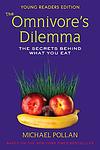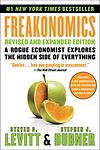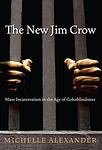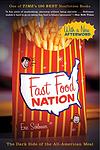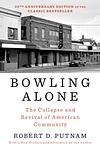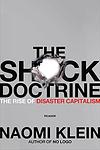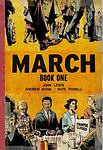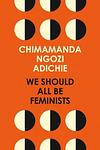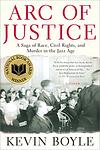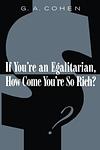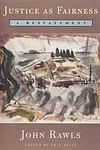The Greatest "Political, Nonfiction" Books Since 2000
Click to learn how this list is calculated.
This list represents a comprehensive and trusted collection of the greatest books. Developed through a specialized algorithm, it brings together 284 'best of' book lists to form a definitive guide to the world's most acclaimed books. For those interested in how these books are chosen, additional details can be found on the rankings page.
Genres
The "Political" category of books encompasses works that explore the theory, practice, and history of government and politics. These books may cover topics such as political ideologies, political systems, political institutions, political movements, and political leaders. They may also examine the relationship between politics and other areas of society, such as economics, culture, and international relations. Political books can be both informative and thought-provoking, offering readers insights into the complexities of the political world and the challenges of governing in a democratic society.
Countries
Date Range
Reading Statistics
Click the button below to see how many of these books you've read!
Download
If you're interested in downloading this list as a CSV file for use in a spreadsheet application, you can easily do so by clicking the button below. Please note that to ensure a manageable file size and faster download, the CSV will include details for only the first 500 books.
Download-
1. Persepolis by Marjane Satrapi
This graphic novel is a memoir that provides a personal account of the author's childhood and young adult years in Iran during and after the Islamic revolution. The story portrays the impact of war, political upheaval, and religious extremism on ordinary people, while also exploring themes of identity, resilience, and the power of storytelling. Despite the harsh realities the protagonist faces, the narrative also includes moments of humor and warmth, providing a nuanced view of life in Iran during this tumultuous period.
-
2. Team of Rivals: The Political Genius of Abraham Lincoln by Doris Kearns Goodwin
This book explores the political acumen of Abraham Lincoln, focusing on how he assembled his cabinet from political adversaries, many of whom initially dismissed him for his perceived lack of experience and ungainly appearance. The narrative delves into how Lincoln used his rivals' talents to navigate the tumultuous times of the Civil War, maintaining unity and leading the nation towards the abolition of slavery. It underscores Lincoln's extraordinary ability to turn rivals into allies, demonstrating his leadership and his profound impact on American history.
-
3. The Omnivore's Dilemma by Michael Pollan
The book delves into the question of what we should have for dinner. It explores the paradox of the omnivore's dilemma, detailing the food chains that link farm to table, and explaining how the industrial revolution has changed the way we eat. The book also discusses the implications of our modern diet on our health and the environment, suggesting that we should return to more traditional methods of food production and consumption. It advocates for a more conscious and sustainable approach to eating.
-
4. The Looming Tower by Lawrence Wright
"The Looming Tower" is a comprehensive historical examination of the events leading up to the 9/11 terrorist attacks on the United States. It delves into the origins of Al-Qaeda, the rise of Osama bin Laden, and the failure of U.S. intelligence agencies to prevent the attacks. The narrative is extensively researched and provides a detailed account of Islamic fundamentalism, the complex politics of the Middle East, and the role of the United States in the region. The book also explores the personal stories of key figures on both sides of the conflict.
-
5. Nickel And Dimed by Barbara Ehrenreich
The book is a firsthand journalistic account of the author's experiment to survive on minimum wage jobs in America. She gives up her middle-class life to understand the reality of low-wage workers, working as a waitress, a hotel maid, a cleaning woman, a nursing home aide, and a retail chain employee. The book reveals the harsh and often overlooked conditions of the working poor, highlighting the struggle to afford even basic necessities, the lack of job security, and the physical toll of such work.
-
6. Sapiens: A Brief History of Humankind by Yuval Noah Harari
This book provides a comprehensive exploration of the history of the human species, tracing back from the earliest forms of Homo Sapiens to the modern day. It delves into evolutionary biology, the development of cultures and societies, and the rise of major ideologies and technologies. The book also discusses the future of the species, posing thought-provoking questions about our roles and responsibilities in a rapidly changing world.
-
7. Freakonomics by Steven D. Levitt, Stephen J. Dubner
This book explores the hidden side of everything, debunking conventional wisdom and revealing surprising connections between seemingly unrelated things. It uses economic theories to explain social phenomena such as the decrease in crime rates in the 1990s, the impact of a person's name on their life outcomes, and the inner workings of drug gangs. By using data and statistics, it challenges the way people think about the world and encourages them to question the accepted truths in society.
-
8. The Bookseller of Kabul by Asne Seierstad
This book provides an intimate and eye-opening look into the everyday life of an Afghan family. The narrative follows a bookseller in Kabul, who despite the oppressive Taliban regime, courageously continues his trade. The story delves into his family dynamics, the struggles of his two wives, his children's lives, and the societal norms and customs they navigate. It paints a vivid picture of life in Afghanistan, exploring the themes of love, courage, resilience, and the power of literature.
-
9. The New Jim Crow by Michelle Alexander
"The New Jim Crow" is a thought-provoking and eye-opening book that examines the deeply ingrained racial bias within the American criminal justice system. Drawing on extensive research and personal anecdotes, the author explores how the War on Drugs has disproportionately targeted and marginalized Black communities, leading to a modern-day system of racial control and oppression. This powerful critique challenges readers to confront the systemic racism that continues to perpetuate inequality and injustice in the United States.
-
10. Evicted: Poverty and Profit in the American City by Matthew Desmond
This book provides an in-depth look at the housing crisis in America, focusing on eight families in Milwaukee who are struggling to keep a roof over their heads. The author explores the role of eviction in perpetuating poverty, illuminating the business of landlords and the harsh reality of tenants in impoverished neighborhoods. The book offers a close examination of the intersection between profit and poverty, revealing how both are intricately linked in the American housing market.
-
11. Fast Food Nation by Eric Schlosser
This book is an in-depth exploration of the fast food industry in America, examining its history, business practices, and impact on society. The author investigates the industry's influence on America's economy, health, and culture, revealing disturbing facts about the production process, the exploitation of workers, and the health risks associated with fast food consumption. The book serves as a critique of the fast food industry and its detrimental effects on American society.
-
12. We Tell Ourselves Stories in Order to Live: Collected Nonfiction by Joan Didion
This book is a compilation of seven works of nonfiction that explore the themes of American culture, politics, and landscape. The author's sharp observational skills and distinctive narrative voice provide insightful commentary on a range of topics, from the counterculture of the 1960s to the breakdown of the nuclear family. Her essays are deeply personal, often reflecting on her own experiences and emotions, while also offering a broader critique of society. The collection is a testament to the power of storytelling, both in shaping our understanding of the world and in helping us navigate through life.
-
13. Bowling Alone by Robert D. Putnam
This book delves into the decline of social capital in the United States over the latter half of the 20th century, illustrating how Americans have become increasingly disconnected from their families, friends, neighbors, and democratic structures. It explores the consequences of this disengagement, arguing that the fabric of American social life has frayed significantly, with civic, social, and political participation diminishing. Through a comprehensive analysis of societal trends, the author demonstrates how this shift away from communal activities towards individual pursuits has profound implications for the health, happiness, and stability of society.
-
14. Ella Baker And The Black Freedom Movement by Barbara Ransby
This book is a comprehensive biography that chronicles the life and influence of a prominent civil rights activist who played a pivotal role in some of the most influential organizations of her time, including the NAACP, Martin Luther King Jr.'s Southern Christian Leadership Conference, and the Student Nonviolent Coordinating Committee. It delves into her commitment to grassroots organizing and participatory democracy, showcasing her belief in the power of the people to instigate social change. The narrative highlights her behind-the-scenes work, her emphasis on collective leadership, and her dedication to fighting racial and economic injustice, making a strong case for her as one of the most important, yet often overlooked, leaders of the civil rights movement.
-
15. The Shock Doctrine: The Rise of Disaster Capitalism by Naomi Klein
This book explores the concept of "disaster capitalism", the idea that global capitalism thrives on disaster and chaos. The author argues that free market policies are often pushed through while countries are reeling from wars, natural disasters, or economic crises. She provides a historical analysis of these events, from Chile in the 1970s, to Russia in the 1990s, to the war in Iraq, demonstrating how governments and corporations exploit these periods of shock to implement economic reforms that would otherwise be rejected.
-
16. March: Book One by John Lewis
"March: Book One" is a graphic novel that depicts the early life of a key figure in the American civil rights movement. Raised in rural Alabama, he grows up inspired by the activism surrounding the Montgomery Bus Boycott and the words of Martin Luther King Jr., which sets him on the path of nonviolent protest. The novel highlights his commitment to the fight for equal rights and his journey from a young boy on a farm to one of the key figures in the civil rights movement.
-
17. Say Nothing by Patrick Radden Keefe
This book is a gripping exploration of the Troubles in Northern Ireland, focusing on the disappearance of Jean McConville, a mother of ten who was abducted by the Irish Republican Army (IRA) in 1972. The narrative weaves together the stories of several key figures in the IRA, including Dolours Price, an IRA member who became disillusioned with the organization, and Brendan Hughes, a former IRA commander. The book delves deep into the political and personal complexities of the conflict, revealing the long-lasting trauma and moral ambiguities that continue to haunt those involved.
-
18. Zeitoun by Dave Eggers
The book is a non-fiction account of a Syrian-American contractor named Zeitoun who decides to stay in New Orleans during Hurricane Katrina. Despite the chaos, he paddles around the city in a canoe, helping those he can. However, he is arrested and accused of looting, leading to a harrowing experience in prison. The narrative explores themes of family, survival, and the breakdown of civil liberties in times of crisis.
-
19. Orwell And Politics by George Orwell
The book is a comprehensive anthology that brings together a selection of essays, letters, and excerpts from novels, showcasing the author's profound political thought and his unwavering concern for social justice, freedom, and the abuses of political power. It provides insight into the author's evolving political ideology, from his early days as a colonial policeman in Burma to his experiences in the Spanish Civil War, which shaped his views on totalitarianism and socialism. The collection serves as both a reflection of the tumultuous political landscape of the 20th century and a testament to the author's enduring influence as a political writer and thinker.
-
20. We Should All Be Feminists by Chimamanda Ngozi Adichie
The book explores the importance of feminism in today's society and argues that gender equality is not just a women's issue, but a concern for everyone. Drawing from personal experiences and anecdotes, the author highlights the various ways in which gender inequality manifests itself and offers insightful perspectives on how we can work towards a more inclusive and equitable world for all.
-
21. Capital in the Twenty-First Century by Thomas Piketty
This book provides a comprehensive analysis of the dynamics of capital accumulation and distribution over the last few centuries. The author argues that the rate of capital return in developed countries is persistently greater than the rate of economic growth, leading to high levels of wealth inequality. The book further suggests that the level of income inequality is not primarily a result of differences in individual labor income but rather the result of differences in capital ownership and the income derived from it. The author proposes a global tax on wealth to prevent soaring inequality.
-
22. Arc of Justice by Kevin Boyle
"Arc of Justice" is a riveting and complex story that unfolds in the racially tense backdrop of 1920s Detroit. The narrative follows an African American physician who moves his family into a predominantly white neighborhood, resulting in a chain of violent events. The doctor stands trial for murder, and the case garners national attention. The book delves into the doctor's fight for justice and the broader societal implications of racial tension, prejudice, and civil rights in America.
-
23. If You're An Egalitarian, How Come You're So Rich? by G. A. Cohen
This book delves into the apparent contradiction between advocating for egalitarian principles and possessing personal wealth. The author, a prominent political philosopher, uses a blend of rigorous argument, personal reflection, and analytical philosophy to explore whether it is hypocritical for a wealthy person to support redistributive policies. The text challenges readers to consider the moral implications of their own economic status and beliefs, and examines broader issues of justice, equality, and personal responsibility within a capitalist society. Through engaging philosophical inquiry, the book prompts a deeper understanding of the practical and ethical tensions that accompany discussions of wealth and equality.
-
24. Imperial Life in the Emerald City by Rajiv Chandrasekaran
"Imperial Life in the Emerald City" provides an in-depth look at the American occupation of Iraq, focusing on the Green Zone in Baghdad, which served as the U.S. headquarters. The book reveals how the U.S. administration was ill-prepared for the task of rebuilding Iraq, and how their lack of understanding about the country and its culture led to many mistakes and blunders. The author, through his first-hand accounts and interviews, paints a picture of a surreal, insulated world within the Green Zone, cut off from the harsh realities of the war-torn country outside.
-
25. Justice As Fairness by John Rawls
The book presents a theory of justice that emphasizes a fair system of cooperation over time, from one generation to the next. The author argues that the principles of justice are those that free and rational persons would accept in an initial position of equality, as defined by the "original position" and the "veil of ignorance." This theoretical approach ensures that no one is advantaged or disadvantaged by natural fortune or social circumstances in the selection of principles. The work elaborates on two fundamental principles of justice: the first guarantees equal basic liberties, while the second arranges social and economic inequalities so that they are both reasonably expected to be to everyone's advantage and attached to positions open to all under conditions of fair equality of opportunity.
Reading Statistics
Click the button below to see how many of these books you've read!
Download
If you're interested in downloading this list as a CSV file for use in a spreadsheet application, you can easily do so by clicking the button below. Please note that to ensure a manageable file size and faster download, the CSV will include details for only the first 500 books.
Download

